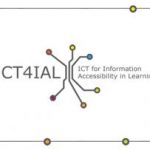Generally, competence is a greater purpose that ensures the transfer of theoretical knowledge acquired into effective teaching practices. In the profession of professor there are three types of competences: professional (they present the theoretical knowledge of the teachers), psycho-pedagogical (they perceive the teacher’s ability to acquaint his students and establish human relations with them) and methodical (refers to the teacher’s ability to actually deliver the elements of the didactic content). Due to the particularities of special/inclusive education, teachers involved in this form of education should mainly have psycho-pedagogical and methodological skills so that they can successfully meet the educational needs of students with disabilities. The aim of the research was to identify the psycho-pedagogical and methodical competences of special/inclusive education teachers, as well as ways to improve them through the use of continuous professional training activities. The sample consisted of 225 teachers working in different forms of special education in Bihor County, Romania. The tool consisted of a 21 questionnaire. The research was conducted in April 2017. Research findings have shown that special education teachers are more empathic and use a wider range of teaching strategies, while inclusive education teachers are concerned with continuing vocational education in the field of special education.
Keywords: didactic competences, people with disabilities, special/inclusive education.
See PDF here







